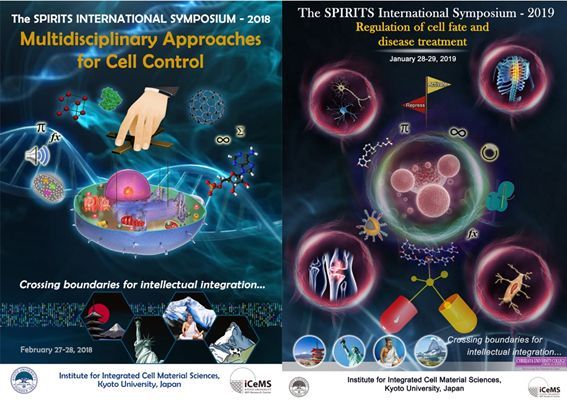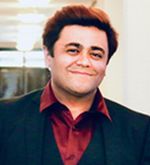Technology Integration from Three Countries to Develop Nanoparticle-based Transcription Factor Mimics and Reconstruct Articular Cartilage Components
Project Gist
Fostering the synergestic research network and creating the nanoparticle-based transcription factor mimics through cutting-edge technological integration between three countries
Keywords
Nanoparticle-based genetic switches, Smart transcription factors, Cell control, Therapeutic gene modulation, Targeted differentiation
Background and Purpose
Modern high-throughput sequencing technologies results in the identification of transcription factors (TFs) whose precise modulation could distinctively differentiate human adult stem cells into specific celltypes. However, there are several roadblocks like the dynamic epigenome, need to control precise genes and lack of proper clinical evaluation system. A closer look at the coordinated control existing in natural cellular environment could help us develop programmable TF mimics that can precisely ON and OFF the gene transcription programs. The purpose of this research is to foster the network between three different world-leading teams with cutting-edge technologies from three different countries specializing on nanobiomedical research (Prof. KiBum Lee), chemical biology (Prof. Hiroshi Sugiyama, Dr. Namasivayam Ganesh Pandian) and clinical translation scince (Prof. Martin Stoddart, AO Research Institute, USA). Together, the three teams aim to create and evaluate an integrative multi-faceted approach for cell control.
Project Achievements
We successfully created a highly interactive research network through mutually beneficial collaborations and established MoU with AO Research Institute, Switzerland. The studies on the design and characterization of components necessary for smart-TF construction resulted in eight publications (three got extensive media coverage). Together, the teams are developing a paradigm-shifting protoscience to develop programable synthetic molecular codes capable of having precise control over multi-gene networks and expecting joint publication. During this tenure, Dr. Namasivayam got promoted as the Junior Associate Professor and Principal Investigator in Kyoto University Institute for Advanced Study and honored with visiting faculty position in Prof. KiBum Lee group, Rutgers University and AO Research Institute. The two successful international symposia with prominent scientists expanded the research network exponentially. We also successfully attained external funding support from external sources to facilitate active student exchanges and to continue this project.
Future Prospects
Our SPIRITS project established active collaborations, MoU exchanges between the core teams and extended gene networks. Now, the teams have a core-to-core program kind of set up that can attract funds to carry out future research. Dr. Namasivayam now has JSPS Kakenhi for Scientific research (B) (FY 2019-2021) with the team members of SPIRITS. Also, an industrial grant (1 million USD) was offered to the teams on this research. The challenge now is to attract the international collaboration grants and attain data to submit the manuscript in the high impact journal.
Figure


Joint Research/Academic Institutions Abroad
AO Research Institute, Rutgers University
Principal Investigator

・NAMASIVAYAM Ganesh Pandian
・Institute for Integrated Cell-Material Sciences (iCeMS)
・NAMASIVAYAM Ganesh Pandian is now a Junior Associate Professor and Principal Investigator at Kyoto University Institute for Advanced Study. His specialty is chemical biology and epigenetics. He is currently developing biomimetic synthetic molecular codes capable of therapeutic gene modulation and programmed cell control. His hobby is to play chess and watching movies.
・http://www.icems.kyoto-u.ac.jp/en/wwa/
